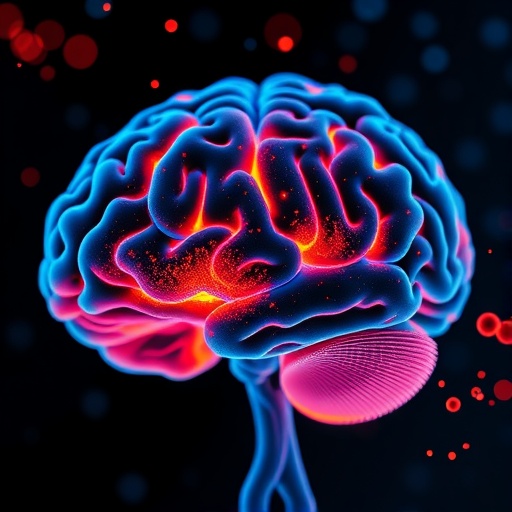A Breakthrough in Multiple Sclerosis Research Unveils the Earliest Stages of Brain Attack
Multiple sclerosis (MS), a debilitating autoimmune disorder, has long confounded scientists and clinicians with its elusive early progression. Patients frequently present symptoms only after the disease has stealthily inflicted years of neurological damage. However, recent groundbreaking research by scientists at the University of California, San Francisco (UCSF) proffers an unprecedented window into the earliest molecular signals indicative of MS onset—well before clinical diagnosis and observable symptoms.
Utilizing a high-dimensional proteomic analysis, the UCSF team examined over 5,000 proteins present in the blood samples of individuals who eventually developed MS, drawing from an invaluable resource: the U.S. Department of Defense Serum Repository. This repository consists of blood specimens collected from armed service personnel long before the manifestation of neurological symptoms, enabling a retrospective molecular investigation into the disease’s initiation and progression phases. By mapping the perturbations in protein expression across temporal stages, the research reveals the covert autoimmune assault on the central nervous system (CNS) that precedes clinical onset by years.
Central to MS pathology is the progressive degradation of the myelin sheath, the lipid-rich insulating layer enveloping nerve fibers within the CNS. This sheath is essential for rapid axonal signal conduction and neural integrity. Targeted autoimmune attacks on myelin by immune effector cells induce demyelination, culminating in neurological dysfunction. The UCSF study pinpoints a critical timeline whereby, approximately seven years prior to diagnosis, there is a notable surge in the presence of myelin oligodendrocyte glycoprotein (MOG) fragments in the bloodstream. MOG is a pivotal component of myelin, and its elevation reflects the initiation of myelin sheath damage, effectively serving as a molecular harbinger of the earliest CNS insult.
Following this initial myelin damage, the researchers detected an elevation in neurofilament light chain (NfL) protein levels about one year thereafter. NfL is a cytoskeletal protein integral to nerve fiber structural stability; its increased circulation indicates the subsequent breakdown of the axons themselves—the “wiring” of the nervous system. This sequence, from myelin breakdown to axonal injury, elucidates the pathological cascade in MS, highlighting distinct molecular signatures that precede symptomatic disease by years.
Intriguingly, the study identified the cytokine interleukin-3 (IL-3) among a constellation of immune signaling proteins upregulated in this early phase. IL-3 orchestrates the recruitment and activation of immune cells to the brain and spinal cord. Its elevation suggests that the immune system’s orchestration of myelin-directed attacks begins early and involves a highly specific molecular choreography. The associated immune proteins detected alongside IL-3 paint a detailed portrait of the immune system’s role in initiating and propagating tissue injury prior to clinical symptoms.
These findings fundamentally shift the understanding of MS pathogenesis. Rather than a disease that abruptly begins at clinical diagnosis, MS emerges years earlier in a subclinical, molecularly mediated fashion—a discovery that opens the door to early intervention strategies. The identification of approximately 50 proteins predictive of future MS, especially the top 21 proteins earmarked for a potential diagnostic panel, holds the promise of blood-based screening tools to detect at-risk individuals long before irreversible neurological damage accrues.
The implications of this research are profound for both clinical neurology and immunology. Early detection could drive new paradigms in MS management, potentially enabling preemptive therapeutic targeting to mitigate myelin damage, preserve axonal integrity, and forestall symptom development. This proactive approach challenges the current clinical framework, which primarily treats MS after symptom onset, often when substantial CNS damage has already occurred.
Senior author Dr. Ari Green, Chief of Neuroimmunology and Glial Biology at UCSF, articulates the transformative potential: “This study doesn’t just deepen our mechanistic understanding of MS; it fuels hope for prevention. By unraveling these early molecular signatures, we envision interrupting the autoimmune attack before it manifests clinically.” The research thereby bridges molecular immunology with neurology, fostering interdisciplinary innovation for MS diagnostics and therapeutics.
To achieve these insights, the team harnessed advanced mass spectrometry and immunoassays with extraordinary sensitivity and specificity, enabling the precise quantification of low-abundance proteins in peripheral blood. This analytic rigor is critical given the blood-brain barrier’s selective permeability and the traditionally limited accessibility of CNS biomarkers. By overcoming these technical hurdles, the UCSF investigators provide a replicable and scalable framework for longitudinal biomarker discovery in neuroimmunological diseases.
Furthermore, the study’s collaboration spanned expertise across neurology, immunology, bioinformatics, and translational medicine. Contributing authors include experts such as Dr. Ahmed Abdelhak, lead author and neurologist, as well as a multidisciplinary consortium from UCSF’s ORIGINS Study, showcasing the strength of integrative biomedical research to tackle complex chronic diseases.
Funding for this pivotal work was auspiciously supported by numerous prestigious organizations, including the U.S. Department of Defense, National Institutes of Health (NIH), National Multiple Sclerosis Society, and private foundations. Such concerted investment underscores the high-impact potential of unraveling MS pathobiology at the molecular level.
In conclusion, this landmark research redefines MS as a disease initiated by silent autoimmune activity well before neurological dysfunction emerges. The identification of a precise timeline—from myelin-specific protein surges to immune orchestrator elevation and subsequent axonal injury—provides a blueprint for groundbreaking diagnostic and preventive strategies. As the scientific community embraces these revelations, patients and clinicians alike anticipate a future in which MS’s onset is not merely managed but anticipated and prevented, marking a paradigm shift in neurological autoimmune disease care.
Subject of Research: Early molecular biomarkers and pathophysiology of multiple sclerosis
Article Title: [Not provided in the source text]
News Publication Date: October 20, 2023
Web References: https://nature.com/articles (journal Nature Medicine)
References: Abdelhak et al., Nature Medicine, October 20, 2023
Image Credits: [Not provided]
Keywords: Multiple sclerosis, brain damage, myelin sheath, nerve fibers, immune system, interleukin-3, neurofilament light chain, myelin oligodendrocyte glycoprotein, proteomics, blood biomarkers, central nervous system, autoimmune disorders
Tags: autoimmune disorder progressionblood protein markers for MSbrain damage before symptomscentral nervous system healthearly signs of multiple sclerosisMS clinical diagnosis challengesmultiple sclerosis researchmyelin sheath degradationneurological damage in MSproteomic analysis in MSretrospective molecular investigationUCSF multiple sclerosis study





